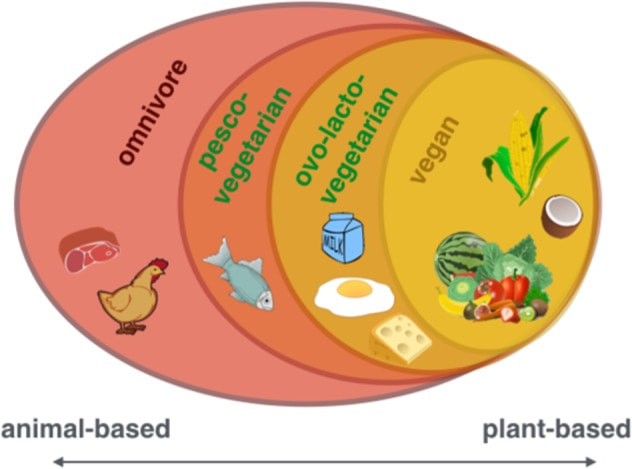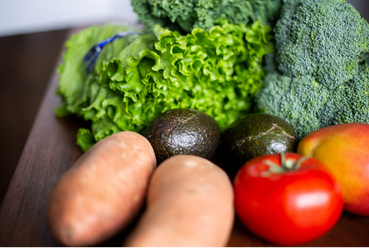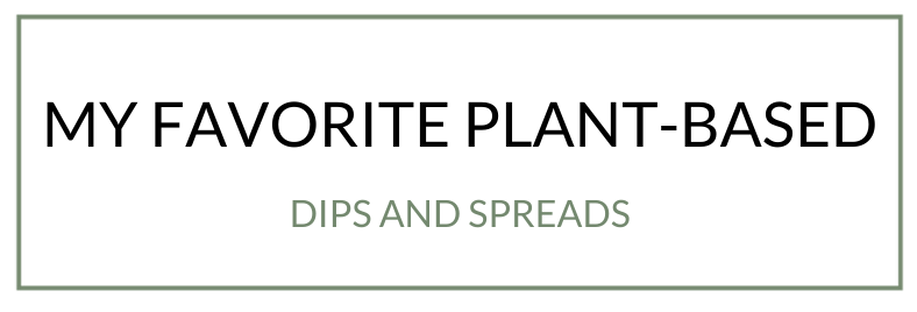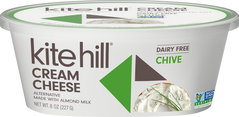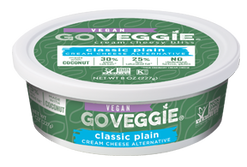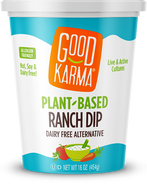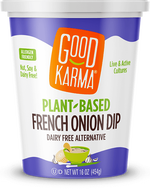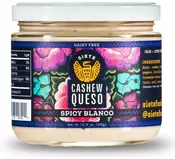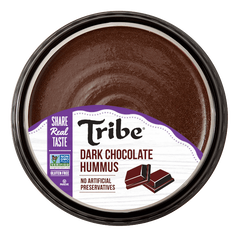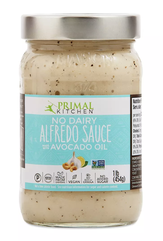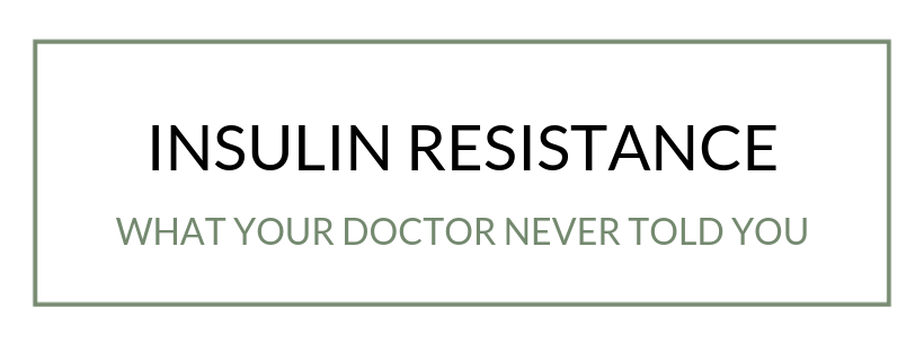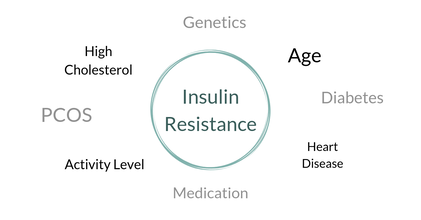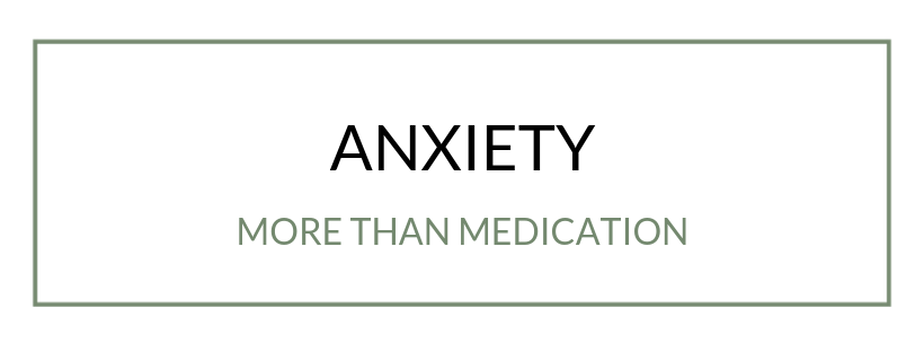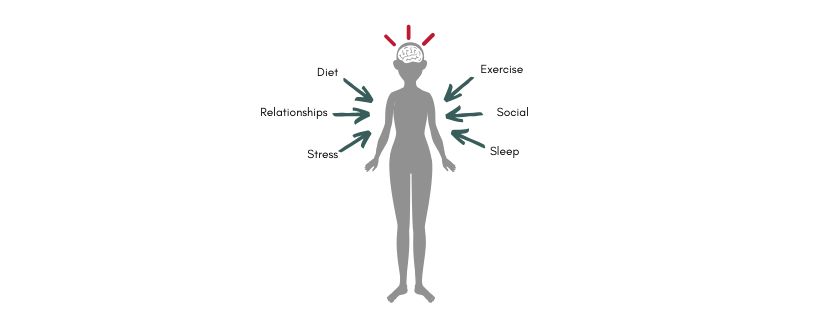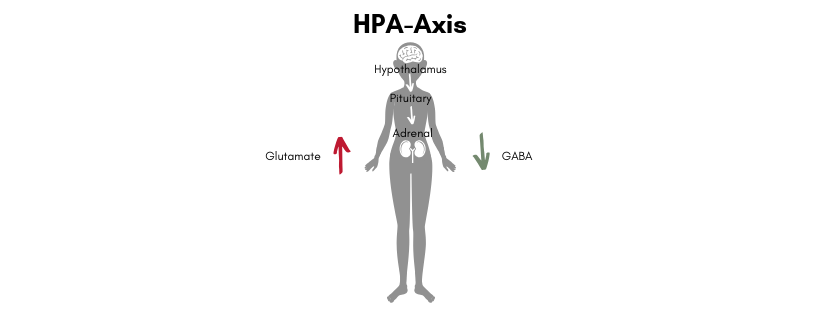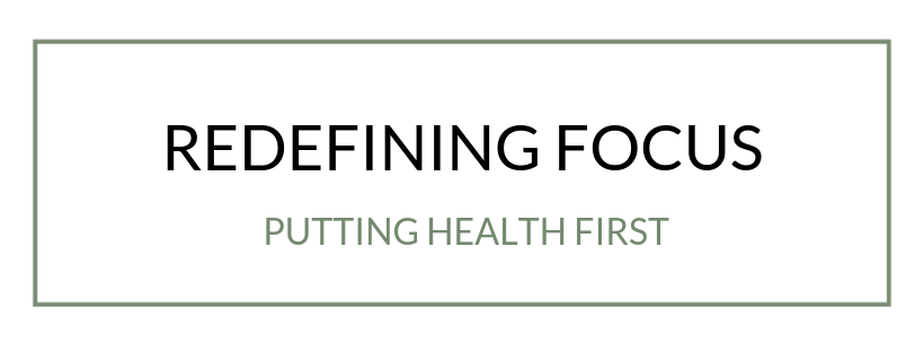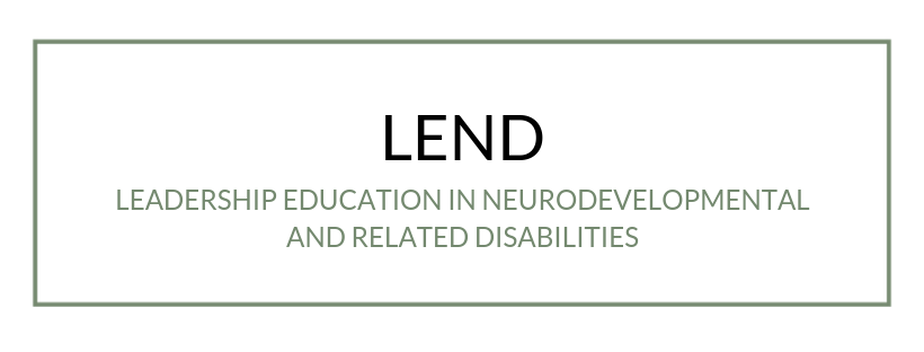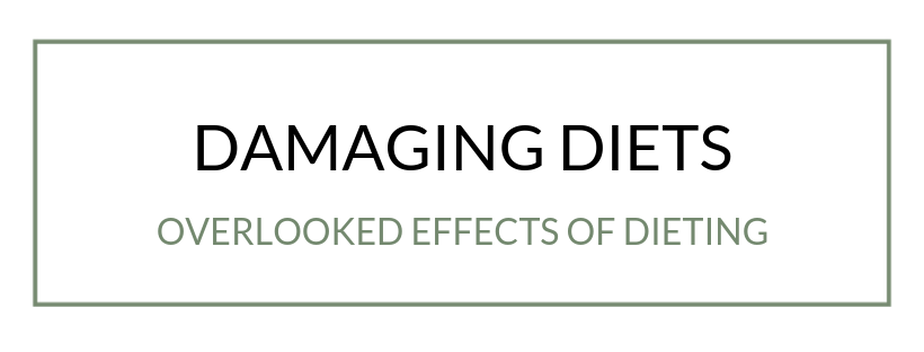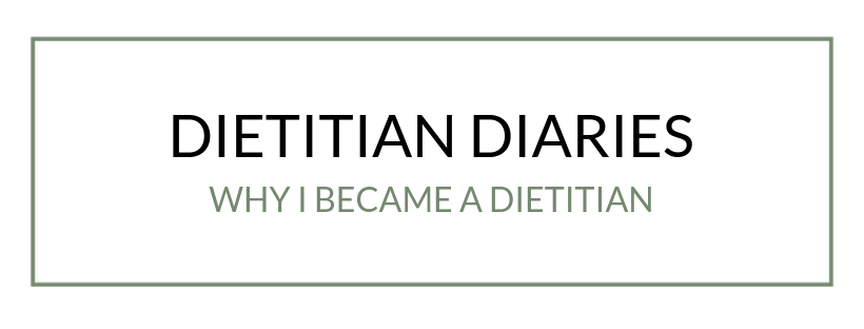|
First off, you should know that while I do prescribe to a plant-based lifestyle for a variety of reasons, I do not consider myself a vegan or vegetarian, and I do not think meat is inherently bad for you. I will do my best to cover all of the nuances of a plant-based diet from nutrition to systemic implications, but if you still have questions please reach out! Plant-Based (PB) lifestyles are continuing to gain in popularity to promote personal health and environmental health. Business Insider’s 2020 food trend predictions are overwhelming plant-based. I would say this is every dietitians dream. Regardless of your nutrition approach, people being inspired to eat more vegetables is a good thing. From the Impossible Burger to Oat Milk and mushroom drinks to underrated veggies coming out of the woodwork, 2020 will continue to inspire people to focus a little more on plants. However, the term “plant-based” is pretty vague and if animal-based foods are what you are accustomed to then shifting towards PB is likely overwhelming. The goal of this article is to outline everything you wanted to know about PB diets and practical ways you can lean into this trend that is actually healthy What does the term plant-based actually mean?In my opinion, the term plant-based is more of an umbrella term used to describe a conscious effort to eat more-and eat a wider variety of- fruits, vegetables, grains, seeds, and legumes. However, do not be surprised when vegans use it as a less offensive term to describe their eating habits to die-hard meat eaters. Shifting towards a PB lifestyle is very fluid and does not mean that you fully exclude meat or animal products. It could simply mean you may be working to decrease the amount of animal products you use through reducing the portion size of meat you eat, not eating meat every day, or even just filling your plate with as many veggies as possible then eating the meat last. Becoming PB may even mean that you limit the amount of dairy, eggs, or seafood you consume, or take measures to determine if your animal-based products are sustainably sourced. For example, I think it’s important to check how your seafood is sourced to ensure that your purchase isn’t harming ocean ecosystems or depleting oceanic populations. The graphic below outlines where various diets fall based on food variety “allowed” under that particular diet. Types of Plant-based diets:
Almost anything can be Plant-Based!Outside of PB diets there are a few other diets that have become pretty trendy over the years, like Keto and Paleo. Most people would say that these are the opposite of PB. However, I think that both of these diets CAN and SHOULD be PB. Paleo is a little easier to sell, even though people tend to think about Paleo as meat heavy, it really doesn’t have to be. For example, you can have a palm-sized protein (~4 oz), which is about the amount of protein your body can absorb at one time and then the majority of your meal should be vegetables. Grains and legumes are typically excluded and so is dairy, but, nuts, seeds, fruit, and PB fats are also staples of a Paleo diet. So at the end of the day, you can do both. Keto is another diet that SHOULD be plant based. In my professional opinion, most consumers who take on a Keto diet do so incorrectly in an unsustainable way. I find the majority of my clients that come to me on a Keto diet are doing so in a way that excludes vegetables and and is heavy in animal products. Hear me here, Keto is not an excuse to not eat vegetables! Limiting starchy veg to maintain ketosis is one thing, however, proper keto is about maintaining a ratio of carbs and protein to fat, not just limiting your carbs, otherwise you are basically doing the atkins diet. So if you are trying to maintain a keto diet AND shift to a more PB lifestyle, you should eat plenty of vegetables and PB fats like olive oil, coconut oil, and avocado oil. Plant-Based ProteinsPB can quickly become overwhelming when it comes to protein. Let me put your mind at ease, YOU DON’T HAVE TO EAT TOFU. A majority of westerners think of meat first when they think of protein and when they think of PB protein they think of tofu. However, there is actually a wider variety of protein in PB diets compared to animal based diets. Keep in mind, most plant based proteins do not have as much protein as a serving of meat would and getting variety is important to make sure you get a complete protein. For a list of common PB proteins check out this Healthline article. Where Does Fat Fit? 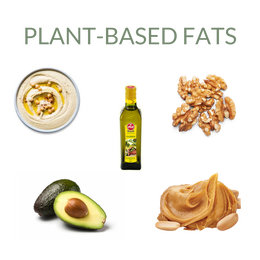 First off, fat is SO IMPORTANT for you health. Fat is vital for brain health, nutrient absorption, and energy, so if you've been avoiding fats, now is the time to start adding some healthy fats back into your life! We may think of a PB diet as relatively high carb, for some it might be and for others it might not be, but as outlined in the comments on PB Keto, fat should still be a star in a PB diet. I personally believe that most people aren’t getting enough high quality fat. Even though the current trend is low carb, most people still haven’t given up their fear of fat, so we are left with protein heavy animal-based diets. When in reality, certain fats can help reduce inflammation, decrease blood sugar spikes, and increase your feelings of fullness after eating. There are many PB fats that can be found in the form of whole foods or their corresponding oils. Here are a few good PB ways to increase your fat intake:
Health Benefits of a Plant-Based DietPB lifestyles are staples of some of the healthiest populations across the world. The book Blue Zones explores common features of populations that have a higher rate of living to 100 years old. Whether they eat no meat, or view meat as an accent rather than a side, PB diets are key features of longevity in 7 different cultures. Since Longevity is more of a fluid idea, just like a PB lifestyle, let's take a closer look at more tangible health benefits:
So the biggest question here is HOW do PB diets impact these conditions? There are a variety of reasons but I’m just going to give you the highlights... Plants contain phytochemicals which are powerful antioxidants that help reduce systemic inflammation. Plants are also high in fiber, which prevents your body from absorbing nutrients that may have a negative impact on your health, like saturated fat. Fiber also helps keep you full and satisfied, which helps reduce the overall quantity of what you eat and slows digestion so your blood sugar is less likely to spike and then tank. Lastly, plants are very nutrient dense, filled with a variety of vitamins and minerals that help our bodies work optimally. You may even be able to see similar benefits while still eating some animal products, much of the damage of a western diet comes from the overconsumption of low nutrient density in processed foods. Here are other resources on the benefits of PB diets: https://www.medicalnewstoday.com/articles/322072.php#1 https://www.ncbi.nlm.nih.gov/pmc/articles/PMC6742661/ https://www.healthline.com/nutrition/plant-based-diet-guide#weight-loss https://www.ncbi.nlm.nih.gov/pmc/articles/PMC2100124/ http://med.stanford.edu/nutrition/nutrition-studies-group/completed-studies/plant-based-diet.html Transitioning to a PB Lifestyle After reading the first part of this article you may be motivated to take on a PB diet, and at the same time completely overwhelmed and confused on where to start. Something to keep in mind is that to make a PB diet stick you’ll want to make very small changes and as you get comfortable overtime, you’ll be motivated and confident in making much larger changes. Small Action Steps:
Cooking Vegetables
Environmental Perspective Even though this is “everything you need to know about plant-based diets” I’m only going to lightly touch on the environmental perspective. There is so much research available if you want to dig into the specifics. So, here’s the gist; consuming an animal based diet has a much higher impact on the environment than plant-based diets, with a fully organic vegan diet having the lowest impact. Factors that influence environmental health are land use, water use, energy use during production, and animal waste bi-products .
Many people in the agriculture industry will argue on the impact that animals have on the environment, stating that raising livestock is much more sustainable than raising livestock 30 years ago. Basically, we can raise 3x the amount of meat using the same amount of resources, which is great, but in my opinion not enough to truly reverse the impact on the environment. There are also issues with Concentrated Animal Feeding Operations (CAFO’s) which is where environmental is not only increased but it also decreases the health of the community the CAFO is located near, with higher rates of water and air contamination. On the flip side, there are many ranchers that have government grants to take extra care of the land they use for raising livestock. Additionally, dairy farming is very resourceful when it comes to day to day operations, however, this goes back to the question of if it’s enough to warrant a continued high consumption of dairy products. Therefore, PB diets with extra consideration for the quality of the food consumed is benefits for both personal health and environmental health. For more information on PB diets, check out my podcast with Kayla Slater, MS, RDN, CDN on plant-based nutrition and athletic performance! Questions about PB diets or their environmental impact? Feel free to reach out! Starting a PB diet? Tag me in your IG photos! I would love to see how you’re incorporating PB nutrition into your day to day!
5 Comments
*I may receive compensation for purchases made through sites linked on this page. Kite Hill Cream Cheese and ChiveGo Veggie Cream CheeseGood Karma Ranch & French Onion DipSeite Cashew QuesoTribe Hummus
Primal Kitchen Alfredo
What are your favorite plant-based products?
Many of you have heard the term insulin resistance, probably from a doctor in relation to a health condition. However, a lot of times health care providers forget that words like insulin resistance don’t mean anything to people outside of the healthcare sector. To understand insulin resistance, you have to know what insulin is AND how the body uses insulin to regulate biologic processes AND how that could impact your specific condition. Throughout this post we will work through what insulin resistance is and how it may be impacting your health. Let’s start at the very beginning. When you eat food, it gets broken down to provide your body with energy. Carbohydrates (basically any thing that started out as a plant, bread, pasta, rice, fruit, veggies, sugar, etc.) get broken down into sugar (or glucose if we are being fancy). Sugar is the fuel source our cells prefer to use. Think of it like your car, there are three basic types of fuel, gasoline, diesel, and electric. You have a regular car and it prefers standard gasoline, glucose is the gasoline of the body. So sugar enters the bloodstream for our cells to use as energy. But for our cells to be able to use the sugar, INSULIN is needed to let the sugar in. WHAT IS INSULIN? Insulin is made in your pancreas. Insulin is a hormone. A hormone is a signal in the body that tells it to do something. In this case, insulin is most famous for telling the various cells in the body take sugar out of your blood. But here’s a fun fact, insulin is also needed for your muscles to use protein, but not as much is needed to use protein compared to carbs. This is why the ketogenic diet is often recommended to people who have conditions derived from insulin resistance (PCOS, diabetes, etc.) because fat doesn’t require ANY insulin to be released. So when you eat, protein and carbs, they signal your pancreas to release insulin, and insulin tells your body to use the protein and carbs. Insulin is what we call anabolic, or a hormone that likes to store energy. This means that when there is excess carbohydrate in the blood, insulin would like to store it for later. When your cells pick up the sugar in your blood, they either use it immediately for energy or they store it in your muscle or fat for later if you don’t need it right away. This also means that your body uses insulin more efficiently (pulls more sugar out of the blood) when your cells need energy the most, say during/after exercising because you either need energy now or you need to replenish the energy stores you used up.
HOW DO I KNOW IF I HAVE INSULIN RESISTANCE? The best way to know if you have insulin resistance is to get you blood work done. Typically you’ll want to get an A1c checked, this indicates your average blood sugar levels over the last three months, a fasting glucose level to see what your body is doing right now, an insulin level to see if you’re producing a normal amount of the hormone, and a C-peptide level which helps interpret your insulin level. Without getting labs done, there is no way to know for sure if you have insulin resistance. However, if you have darkened skin (compared to the rest of your body) on the back of your neck or around your armpit region you might have insulin resistance. HOW DO I IMPROVE INSULIN SENSITIVITY? The biggest question here is “If I have insulin resistance, what do I do about it?” Since insulin resistance is so individualized, you really should talk to someone (preferably a healthcare provider) who specializes in managing insulin resistance. When looking for this person, I would recommend avoiding anyone who gives you a cut and dry answer, because you really need someone who will assess what is right for your preferences and your lifestyle and walk you through how you can implement that in your own life. Overall there are four avenues you can explore for managing insulin resistance; diet, exercise, lifestyle, and medication. Exercise: As we talked about earlier, exercise makes your cells more insulin sensitive because they either need energy or need to replace spent energy. If exercise isn’t your thing it can really be boiled down to movement. After you eat, specifically in the hour after you eat when blood sugars will be the highest, go for a short walk (at least 10 minutes), stay standing and do some chores, or literally anything else that involves moving your body. Diet: Okay, this one is a little controversial and one of the main reasons you should find someone who can help you find the right path for you (*cough* a dietitian *cough*). I mentioned the ketogenic diet earlier and that’s an option, the focus on fat as energy reduces the insulin secreted in the first place, BUT you still need to EAT YOUR VEGGIES (that’s a whole other conversation, but please!). Intermittent Fasting (IF) is another option. IF helps reduce insulin because when you eat in a time restricted window your pancreas isn’t kicking out insulin all day to process the food you’ve been eating. You could focus on counting carbohydrate or eating more carbohydrates that have less of an impact on insulin levels. Or you could always try Intuitive Eating which tells you to eat what you want when you want to and although it may be a longer process than the other two options, you’ll probably end up happier and less stressed about food. There are some other strategies as well but I’m just going to defer to having you ask someone who can walk you through what best best choice is for you based on your labs and your lifestyle. Lifestyle: Lifestyle is another huge impact on insulin resistance. Major players: poor sleep, high stress, and injuries causing inflammation (that’s another topic as well). Each of these things, plus other factors that cause inflammation will decrease your insulin sensitivity. If you think that lack of sleep and high stress are really prevalent in your life, you might start your journey here. Medication: You can always turn to medication to help manage your insulin resistance. Ask your doctor what they recommend to help you start managing blood sugar levels. You can/should still work on the other avenues of managing insulin resistance, but medication can provide you with immediate relief and can help reduce your risk for conditions associated with insulin resistance while you work on your lifestyle, diet, and/or exercise. Insulin resistance is tricky, but if you’re interested in managing an associated condition or reducing risk for a condition, you have treatment options!
Let me know in the comments you this post was helpful and improved your understanding of insulin resistance. REFERENCES https://www.everydayhealth.com/type-2-diabetes/insulin-resistance-causes-symptoms-diagnosis-consequences/ https://www.nih.gov/news-events/news-releases/nih-study-shows-how-insulin-stimulates-fat-cells-take-glucose https://www.ncbi.nlm.nih.gov/pmc/articles/PMC3277302/ https://www.verywellhealth.com/pcos-and-insulin-resistance-2616319#the-connection https://www.ncbi.nlm.nih.gov/pmc/articles/PMC380258/pdf/JCI0010842.pdf https://emedicine.medscape.com/article/2089224-overview#a2 https://www.ncbi.nlm.nih.gov/pmc/articles/PMC5336429/#!po=15.0000 Are you having a heart attack, or are you having an anxiety attack? Do you need someone to lie on your chest just so you have a reason to feel like you can’t breathe? Are you upset because your trigger is irrational, and you know it? Has anything helped with managing your condition? Our bodies are complex, and our brains are even harder to understand. Addressing aspects of anxiety with nutrition is tricky because many of the studies have been done on mice, and a day in the life of a mouse is considerably different from a day in your life. But here’s what we do know: anxiety is impacted by social, environmental, and biological factors, which means we need to address all three to improve the severity and frequency of the condition. First, therapy is a must; you won’t just be talking about your problems and what keeps you up at night, but you’ll walk away being able to trial different coping mechanism. You need to know that there are multiple methods of addressing anxiety, so if one doesn’t work for you, go back. There may be other methods you can try, or you might just need a little more practice implementing some strategies. The same thing goes for nutrition: it takes time, and you may have to address multiple problems before you can find solace. As we go through how nutrition impacts anxiety and vice versa, it’s important to keep in mind that you NEED to work through this one-on-one with a nutrition professional. This is not the sort of thing that you can do on your own. The purpose of this post is to show that nutrition does play a role in anxiety, but you need to work with someone to address your specific needs and assess NECESSARY lab work. Honestly, it’s way too complicated to outline in a mere blog post, so here we go! Overall, mechanisms that contribute to anxiety aren’t well understood, which makes the research hard to interpret. In some studies, we may see that a nutrient causes anxiety levels to go down, but we don’t know why. This makes it really hard to determine if a method of anxiety management is worth it. Additionally, statistical significance (what we look for to determine if an intervention has an impact) does not mean clinical significance (a judgment call on what will actually help people in real life). Without clinical significance, we may see markers for anxiety decrease, but you may not physically feel that your anxiety has decreased. This makes treatment for anxiety, especially nutrition interventions, a process of trial and error. Anxiety is caused by a hyperactive HPA-axis, or a pathway that connects our brain to hormone-signaling organs and regulates the stress hormones in our bodies. Glutamate is the major neurotransmitter that stimulates the HPA-axis whereas GABA suppresses the HPA-axis. Therefore, GABA supplementation can possibly reduce anxiety (but ask your doctor first). You can also find GABA in fermented foods, but from the research, it’s difficult to tell if it has a significant effect on HPA-axis activity. However, fermented foods are good for our gut, so it may be worth it regardless! Even though glutamate simulates HPA-axis activity, there are many reasons that the axis is over-stimulated or not turning off, including not having enough of specific nutrients to suppress the pathway. Zinc and magnesium are two nutrient deficiencies that may contribute to anxiety. Both nutrients act to regulate the HPA axis, which means if we are deficient in either of these nutrients, our susceptibility to anxiety is much higher. It is estimated that roughly one-half of the population does not consume enough magnesium, and a large portion of the population is at risk for zinc deficiency. Vegetarians fall into this category, and due to an increased number of people following this eating pattern, it’s important to ensure that we consume adequate quantities of zinc and magnesium. In combating anxiety, evidence also shows a therapeutic use for omega-3’s. Omega-3’s are all the rage right now; from heart disease to brain health, they seem to be a cure-all. Omega-3’s are one of the most studied nutrients when it comes to anxiety. They play a huge role in reducing systemic inflammation in the body. However, the ratio of omega-6’s to omega-3’s is what’s important. The standard American diet is super high in omega-6’s (read some labels and tell me how many of the products use corn and soy oil!). The ratio of omega-6 to 3’s in most American diets in ~20:1, and the goal ratio is 4:1 or less (ideally 1:1, so you’ll be limiting a lot of processed foods). Omega-6’s are inflammatory; however, some are also necessary. By increasing omega-3’s and decreasing omega-6’s, we can make sure all our bodies’ needs are being met. We do know that omega-3’s play a role in reducing inflammation and improving neurotransmission, but we still don’t know exactly how omega-3’s reduce anxiety although preliminary research is promising. Highlighting omega-3 content in foods is common with the growing popularity of the fatty acid; however, there are different kinds of omega-3’s, and they play different roles in the body. EPA/DHA are the kind of omega-3s that have a large role in reducing inflammation, and you can only get these from animal, mainly marine (fish), sources. ALA is the other type of omega-3 and is one of two essential fatty acids. ALA is the omega-3 found in plants, which is important but it is not readily converted to EPA/DHA (only ~1%, depending on your genetics). So if you’re looking to get in a hearty dose of the god-like omegas then you’ll need to make sure you are consuming a variety of omega-3 sources (plants and fish). Anxiety is a multifactorial condition where proper nutrition is a contributing factor to severity and frequency. Other lifestyle factors may also aid in anxiety control, such as high quality sleep and stress management, both of which also impact systemic inflammation. Of course, there are medications you can take, but at the end of the day, anxiety is a condition that requires treating the root causes of exacerbation and addressing triggers. If anxiety is something you suffer from, I recommend that you meet with professionals to fully explore the root cause. Although many people seek guidance from a psychiatrist or therapist, nutrition is often overlooked yet could play a major role in anxiety management!
Are there any foods or activities that help you manage anxiety? February has been a whirlwind. For the last three weeks I have been in full on triage mode. "What is the most important thing I have to do in this moment and what is the least amount of time I can spend on it while still producing high quality work?" I feel like this is the only thought my brain has had all month. I have a nasty habit of overextending myself, however, I genuinely enjoy almost everything I do and what I don't enjoy is a necessary evil. I am currently a graduate student, graduate research assistant/teaching assistant, LEND trainee, volunteer prenatal dietitian, and volunteer public policy coordinator for a non-profit. My biggest fault is a tie between caring too much and having too much ambition. Earlier this month, I attended a leadership training at the Kansas Leadership Center called Your Leadership Edge. During these three days, I was exhausted from introspection but I learned some very valuable skills and received guidance from my amazing small group. First, I need to address "competing values." I cannot physically focus the full about of my attention on everything I'm currently doing (plus, friends, family, and taking care of myself). Second, I need to focus a little more on taking care of myself. The last year in particular has looked very different for me in terms of diet and exercise compared to what I consider my "normal life" and how my friends and family think of me. In fact, I would say that those two aspects have been relatively non existent. So after continued introspection the last few weeks, I've come to the conclusion that I would like to get back to doing the things that make me happy and have nothing to do with work (because my work actually makes me very happy, most days). Going forward, my goal is to practice saying "NO" to things that do not get me closer to my future goals. Luckily, a few things on my plate are timestamped to end in May, regardless of if I want them to or not (Grad School, GRA/TA, LEND) Some of that time will be replaced with a job where I'll have more direct focus on one thing. Then I'll just need to work on not filling that space (easier said than done). I'm also making time in the kitchen, making meals I love, a priority (something that has not been happening as much as I would like) along with spending a little more time in the gym (also, not happening regularly, if at all, right now).
Being busy is not an accomplishment. 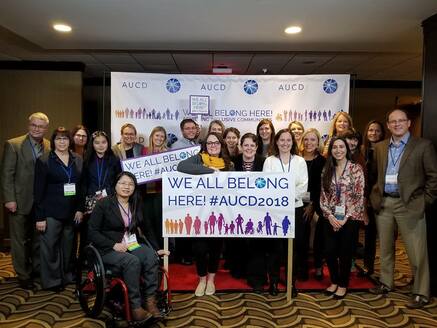 My colleagues at the annual AUCD conference in Washington D.C. My colleagues at the annual AUCD conference in Washington D.C. Last year, I applied for something called the LEND program. LEND stands for Leadership Education in Neurodevelopmental and related Disabilities, which is a mouthful so let’s just stick to LEND. When I applied, I really had no idea what I was getting myself into. I applied because I thought it was a pediatric program that worked with children primarily on the Autism Spectrum and with children who have other conditions, like Cerebral Palsy and Down Syndrome. Throughout my previous clinical experience I had worked with several children with developmental delays so I thought it would help me better serve that population when I got a job in clinical nutrition. I’m not someone who is especially worried about the unknown so this information was enough at the time. Today, I want to share what I have learned through the LEND program so far and why I think you should consider the LEND program too. What I now know is that the LEND program is Leadership Education in Neurodevelopmental and related Disabilities, to prepare trainees to advocate for improved opportunities and care in clinical and community settings for those with complex health, learning and behavioral needs in an interprofessional setting. There are five components to the LEND program: education on integrated interdisciplinary care for individuals with complex health needs, advocacy that supports those with complex needs to ensure they can reach their life goals, research to help support future care and community services, clinical experience where I have had the amazing opportunity to work with a pediatric cystic fibrosis population, and leadership to pave the way for an inclusive and supportive future. I could have never imagined what I would gain from the LEND program. However, I think I value my new perspective the most. I’ve always worked clinically in an interprofessional setting, but I’ve also never worked this closely with some of the other healthcare professions. My class is made up of Occupational Therapists, Speech Language Pathologists, Physical Therapists, Social Workers, a variety of psychologists, parent advocates, and self advocates. Together we unpack issues that go outside of the standard clinical thinking, focusing on how there is a system at play that interacts with other systems working through a multi-system model. Many practitioners ask what the parents need from them and give them a few items to work on between visits. But what I don’t here practitioners asking is what is the most important aspect of your child’s care to you, and sometimes this may not be your discipline. When a parent has 13 different providers asking them to work on 2-3 tasks each, it’s just too much. Plus, people have lives outside of their child’s health issues and you may have no idea. This new insight has really shaped the way I counsel patients and build rapport because I’ve been able to get to know parents and self-advocates who have graciously shared their perspectives with me. What I have come to realize is that patient-centered care doesn’t just mean I meet the patients where they are nutritionally, but in the grand scheme of their life, nutrition might not be the most important battle they are fighting. Sometimes a patient needs to know that you can help them with what they can handle, which could mean you’re making your nutrition goals relate to their other goals or referring them to someone who can meet their needs, reassuring them that you’ll be there when they are ready. There is so much more to the program/traineeship that I will share as I progress through the next semester. However, if you have the opportunity to get involved in a LEND program (they’re all over), I would highly recommend it. LEND is truly unique and you can tailor your experience to your interest and the impact you want to make. Although you are only required to devote a set number of hours to the program, I suggest allowing extra time because the opportunities are inspiring, and I continually want to dedicate more time than I have. LEND has been one of the most influential aspects of my education and has made me a better provider and community member. 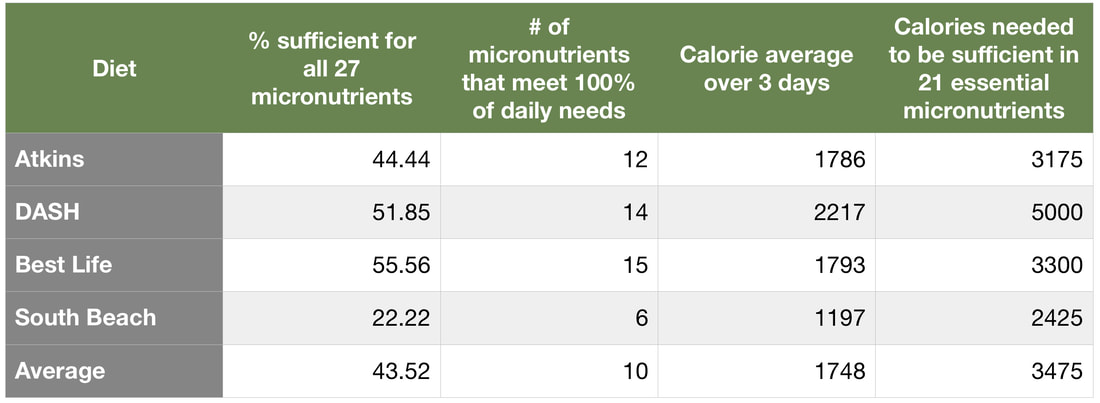 Content Warning: This post contains numbers and terms that may be triggering for those with eating disorders or disordered eating behaviors. What happens when you eat less? This isn’t a hard question, you put fewer nutrients into your body. You might be getting enough protein, fat, carbohydrates, and even calories to sustain life, but you probably won’t be getting enough micronutrients to truly be “healthy.” Micronutrients are the vitamins and minerals our bodies need to function optimally. They are needed for every metabolic process, without them, we don’t use energy (food) as efficiently as we are supposed to. Micronutrients are also important for building structures in our bodies, like our bones, and they keep our vital biological systems running as they should be. Research shows that those at a higher weight may be more likely to have micronutrient deficiencies. This poses the question “Are these individuals overweight because they are deficient or deficient because they are overweight?” There are a few potential mechanisms at play, deficiencies result in poor processing of nutrients and could potentially alter metabolism. Deficiencies can hinder your livers ability to process and remove toxins (the only detox you’ll ever need) which may be affecting your ability to process nutrients effectively, on the flip side, the fat soluble micronutrients (aka those that need fat to be absorbed) could be “trapped” in your fat cells and rendered unusable. There could probably be other mechanisms at play but these are the main three. DAMAGING DIETS So let’s put two and two together here. If you’re at a higher weight you may be deficient in key micronutrients and because you are at a higher weight, you are more likely to try to lose weight by dieting, leading to further deficiency. One study looked at the Atkins Diet, the Best Life Diet (Mediterranean style), DASH Diet, and South Beach Diet and analyzed three days of their suggested meal plans. The average calories per day between all the diets was 1,754 calories (which isn’t enough for most people). They found that none of the diets were more than 55% sufficient for your daily needs for 27 essential micronutrients. After this assessment, they excluded 6 micronutrients that were consistently deficient across all 4 diets (biotin, vitamin D, vitamin E, chromium, iodine, and molybdenum) and determined how many calories would be needed to meet 100% of the Dietary Reference Intake (DRI) for the remaining 21 nutrients. Here’s the break down: This study also broke down the percent of the dietary reference intake that each nutrient from each diet meets (not shown here). Which is important to understand because the chart shows us that the South Beach Diet is lowest in overall micronutrient sufficiency at 22.22%, but also lowest in calories when all micronutrients meet 100% of need. This means that more of the micronutrients are close to meeting needs on the original diet when compared to the others. I don’t just want the take away from this post to be that you should follow a diet but double the amount of food you eat. I want you to understand that restriction results in deficiency whether that’s an energy deficiency, macronutrient deficiency (protein, carbs, or fat), or micronutrient deficiency. Besides, even at an increased calorie level these diets are still deficient in key nutrients like vitamin D (which is super underrated!), vitamin E (an antioxidant), and iodine (major player in thyroid function), but you can get these nutrients from other foods that just may not be included in the diet. If you listen to what your body is asking you for, you’ll probably get all the nutrition you need! (If you don’t know how to do this, you should definitely ask a non-diet or functional RD). SUPPLEMENTING DEFICIENCIES “But B, can’t I just take some vitamins and maybe a supplement?” You could, but I still don’t think you’ll be living your best life (some people really do need supplements, so please don’t think I’m supplement shaming here). Too often we think about the individual impact of nutrients on our health. However, we don’t consume nutrients, we consume food. Food is made up of multiple nutrients that interact and impact the body collectively. So when you eat an orange, you get way more than vitamin C. Oranges contain fiber, folate, thiamin, vitamin B5, copper, potassium, and calcium, plus other vitamins and minerals that act as antioxidants. Supplements can often provide vitamins, minerals, and other antioxidants at a value that is too high. This can lead to negative side effects and undue stress on our bodies organ systems. Without knowing if you are actually deficient (by having labs done) it may not be in your best interest to begin supplementing. When you eat food that is rich in vitamins, minerals, and antioxidants you are providing these nutrients in much smaller quantities which your body can handle better. Additionally, food contains other nutrients, like the orange, which can act as a buffering system because some nutrients compete with other nutrients for absorption. Knowing when to supplement nutrients is a complex topic, so I would always recommend having labs drawn and running supplements by a physician or dietitian before use. NUTRITION NOT NUTRIENTS So maybe you’re now asking yourself how you can get in double the calories with your salads, smoothies, shakes, and other foods deemed as “health foods” with out having to eat all day long? Here’s the thing, your body is a pretty cool machine. It knows what it needs and it knows how to get it. Sometimes we have trouble trusting our bodies because we have been exposed to so many environmental pollutants, like a toxic environment where we protect ourselves with food, messages from an industry that thrives on people seeking health, or even medical recommendations that have been given with good intentions but have been skewed by gaping holes in research. However, the answer to the question honestly depends on a lot of personal factors, which you should talk through with a dietitian, but I want you to keep in mind that a cookie isn’t just “junk food” a cookie contains nutrients too. Cookies, bread, potatoes, butter, or whatever other foods our brain is whispering to stay away from, can have a place in our diet where they aren’t a scary food, but just another source of nutrition. Overall, I want you to walk away knowing that calories in versus calories out is not an adequate way to assess your health. I want you to know the benefits of eating an appropriate amount of food support health far more than restricting calories to keep a number on the scale down. This post may have some red flags going off in your head because we have have gone against much of the health education you’ve received, but to avoid going too far off topic I’m going to end it here. I’m working on additional posts to add clarity to this topic and I’ll let you know when they are ready! How does the idea of micronutrient deficiencies and calories restrictions challenge they way you think about food? Let me know in the comments. 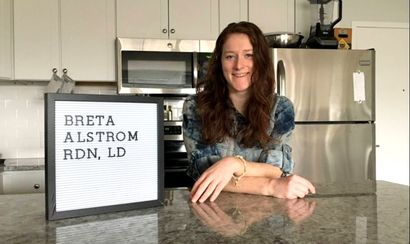 I decided to become a dietitian my freshman year of college, which is actually super surprising considering I graduated in May with an “undecided” in the university column next to my name. I had no idea what I was going to do, where I was going to go, or who I was going to be. Six months earlier I had returned from Australia. I was in a year-long exchange program where I lived with a family that I had never met before. I could talk forever about my exchange experience so I’m just going to leave it at that. During this time, I thought I was going to be a dermatologist, I was going to go to an Ivy League school with a premed designation and then attend medical school. There are a lot of problems with this looking back, I’m not a huge fan of Math and because I went to Australia, I essentially forfeited the year of math I was ahead in, which means I would not take calculus or physics in high school, therefore, I would be at the mercy of the Princeton professors and it probably wouldn’t have gone over well. When I returned home, I was seriously considering nursing school and playing softball. But what I really wanted to do was take a Wildlife Medicine course where you live off the land of the Rocky Mountains for six months, or do a semester at sea to get my Gen Eds, but my parents weren’t really feeling that plan. During my last semester of high school, I took a Certified Nurse Aide (CNA) course so I could test out the whole nursing thing. But when it came time to graduate, I was still lost, with nowhere to go. That summer I was playing club softball and spending most of my time kayaking. While out on the water I spent a lot of time thinking about what I was going to do. I thought about being a eating disorder counselor and becoming a therapist, inspired by one of my closest friends, I thought about becoming a hiking guide and moving to Colorado getting a job that does anything outside, I still thought about med school or more so becoming a Naturopath. Honestly, the only thing I wanted to DO was travel (I’d still take some suggestions on jobs in this line of work). Fast forward three weeks and I committed to Colby Community College to softball. We can laugh at this, I went from Princeton to community college in the middle of Western Kansas. A lot of people were surprised I went to community college but the other school I was looking to play softball at and had a nursing program, was a private school and I didn’t want to pay a ton of money when I didn’t actually know what I was going to do. At the end of the day, I landed in exactly the right place, I learned a lot about myself, I made lifelong friends, and there’s a certain freedom that comes from living in the middle of nowhere when you’re 18. At Colby, I was taking all of the science classes, just in case I became a nurse, and working as a CNA, just in case I became a nurse. But honestly, I loved my residents and I made decent money, especially when you have nothing to spend it on, had a flexible schedule, and I learned so much about patient care from the experience. Then one day, on the Softball field, we were stretching and I was probably talking about health or nutrition, or something and my second baseman asked me what I was majoring in. To which I replied general studies. She told me I should be a dietitian. After practice that day, I went back to my dorm room and figured out how to become a dietitian. Here we are, almost 5 years later and I’m a dietitian and I’m 6 months away from getting my masters. Despite this one moment from God being the catalyst for my academic and professional endeavors. I think that I was always meant to be a dietitian, I just didn’t know that dietetics was something you got an education in. And as it turns out, with all the biochemistry involved I should have just become a doctor, but hey, I didn’t have to take physics so that’s a win. Growing up, I always cared about health and eating to feel my best during athletic practices and games. I was spoiled, so let’s acknowledge my health privilege here, my parents would pack me a bus lunch and a meal for the ride home so I wouldn’t have to eat the chocolate covered granola bars and chocolate muffins in the snack packs provided. In the summer when I played softball and we would have to eat out in between games, they would pack my own meals because I wouldn’t eat fast food while we were playing. My mom also made sure I had some pre-practice fuel no matter what the sport was. This is something I really valued, but there were a lot of times when other kids on the bus would ask to try what I was eating because they were curious and wanted to eat better, but there was something missing. I still think about these experiences often. They’ve shaped the way I want to practice dietetics, working with parents to improve their nutrition literacy, reducing the barriers to providing children nutritious meals that taste good! Going back even further, my grandparents are some of the healthiest people I’ve ever met. If you’ve read The Blue Zones (which I would recommend), my grandparents house is their own little Blue Zone. They had an immaculate garden with flowers, berries, and vegetables. We would help harvest what they grew, which meant snacking on raw peas while shelling buckets of them. Although, my favorite thing about the garden was the raspberry bushes, we could pick them, but not many of them made it into the house. This garden helped me understand the way we grow, the way we eat, the importance of sustainability, and later sparked ideas of food as medicine. My grandparents are also very active, they worked outside, they worked inside, and they always had time to play with us. Together we would go on walks and bike rides, and I made my grandma play just as hard as I did. My grandpa would lay concrete when it was warm, and would walk or bike around town regularly. To this day, my grandma wakes up in the morning and does her walking, push-ups, and squats. They would hike through the mountains when we would vacation, and you’d never guess their age. They fit all the criteria for the Blue Zones, even though I’ve skipped over some in this post. They are my health heroes. The bottom line is that teaching people about nutrition and health is my calling. It’s something I have been primed to do my entire life, even though I was oblivious. A lot of people I know became dietitians because they, or someone they loved had severe disease that could have been prevented with lifestyle and diet change. But for me, I’ve see the strength that nourishing food gives you, how it fosters strong families, what is really meant by quality of life that dietitians promise to improve, and how a balanced healthy lifestyle allows your physical, mental, and spiritual health to flourish. What/who has shaped your personal relationship with food and health? *Trigger Warning: This post contains numbers and terms that may be triggering for those with eating disorders or disordered eating behaviors.
The Fall of 2014 may be the healthiest I’ve ever been. Today, I’m probably not as physically healthy, but I’m just as fulfilled. In 2014, I was a college athlete and my performance was everything to me. I was working out 2-3 times per day, but not because I was worried about my weight or being in shape for softball, but because I lived in Western Kansas and I had nothing better to do. I was taking a heavy load of science classes, so three classes made me a full time student. This meant that I had a lot of free time. I would wake up in the morning, eat breakfast, do some work, go for a bike ride, have a snack, go to practice, stay and go for a run, eat dinner. My friends were active too, we would go on walks or hang out at the park if we needed something to do. I also worked as a CNA at a nursing home, so I was active for that plus I made enough money to buy what ever I wanted from the grocery store. I didn’t have a dorm meal plan because I was starting to have GI issues after my freshman year. I was also doing an elimination diet, for the GI issues, which I could sustain due to my minimal expenses and I had the time to prepare meals. (Which I do not recommend doing without the guidance of a medical professional, I lost about 1.5 pounds of muscle mass which is less than ideal). My RD friends are going to read this and think I was orthorexic or having an obsession with eating food that one considers healthy. But the truth is, I have never had anxiety around eating any sort of food. I would also eat as much as my body needed, never restricting portion sizes or times I could eat. Plus, I grew up eating a lot of fruits and vegetables. My parents have always spoiled me and made sure I had a nutrient dense meal to eat a sports games and tournaments, so it really wasn’t anything new. It's a way I grew up eating, so I really enjoyed the food I was eating, even after the elimination diet. On the movement side, I love being active. Working hard and pushing myself to accomplish a lower mile time, a few extra miles on my bike, or just going on walks to connect with my friends was so much fun for me! For me, exercise is more a way to explore the world and finding ways to challenge myself. It's also important to know that I had very little stress and life was good. Today, I’m missing two things I had in 2014; what seemed like endless money compared to what I needed and the perception of infinite time. It’s been about a month since I’ve had a decent workout, I don’t eat as many vegetables and fruits as I used to. Sometimes I choose to sleep instead of getting up in time to pack a lunch, so I opt for buying it. A lot of times I’m up late doing assignments and I forget to eat a real dinner, so I eat tuna salad and crackers. But I still love to push myself in the gym. I always focus on what I can do, and never what I look like. There are a lot of times where I would love to go work hard in the gym, but I'm exhausted from the day. Despite grad school taking me for all I’m worth, I know that I am doing much more meaningful things right now than I was back then. In 2014, all I could think about was traveling and seeing the world, and although those thoughts still occasionally weigh heavy on me, I feel like I have a much clearer purpose in the world. My day to day is filled with meaning and work where I prioritize what I can provide to other’s instead of myself. I have worked at a gym for the last year, and I get to work with and inspire others to reach their health and fitness goals. I volunteer in a free clinic, where I do nutrition counseling for pregnant women. I’m participating in a traineeship to better understand the needs of people with disabilities and their families in healthcare and community settings. I regularly go to church and meet with a group of people who I can grow in faith with. I volunteer for an organization where I get to help influence nutrition policy at federal, state, and local levels. So sometimes I go for a 10 minute run, do an online dance class, or just go to the gym and mess around without pushing myself. I’m learning what my physical and mental health looks like in the context of graduate school and completing tasks that may seem arbitrary to please professors. I've learned a lot about showing myself grace when my behaviors may not be as "healthy" as I would like, because I know the effect that restricting foods and overdoing it with exercise in an undernourished body has on your long term health. So now sometimes a workout is my form of self-care, sometimes it's watching Netflix. Show yourself grace and ask yourself if you enjoy what you're eating and where you can fit in joyful movement. Mental health is just as important as physical health. In fact, you mental health and/or negative perceptions of your body can attribute to long-term health effects, regardless of your weight. What's your favorite form of self-care and how do you practice gentle nutrition and joyful movement? *Note: if you do find yourself feeling anxious around food or struggle with body image issues, please reach out to a trained professional. 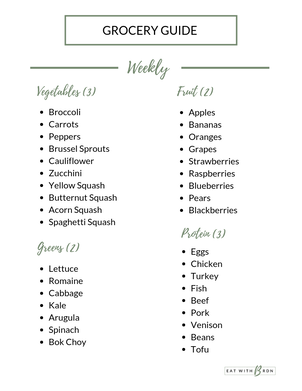 Check out the link for the full guide! Check out the link for the full guide! You may think it’s funny, but grocery stores are my happy place. I could spend hours wandering the aisles, appreciating and learning about the food on the shelves. But who has hours to grocery shop? I guess not everyone has the same love affair with groceries that I do. I can understand that, and many of you may not know how to navigate the endless choices that line the aisles and what foods treat your body, mind, and budget well. We all need to eat, which makes buying food a necessity, and that should not be a stressful situation. A few things you should know about my grocery shopping process: 1. I R A R E L Y M A K E A G R O C E R Y L I S T Unless there is something I need for a particular recipe or something I absolutely need for the week. 2. I D O N ' T P L A N O U T M Y M E A L S When I do, I typically end up buying more food than I need and I don’t end up making half of what I planned. My schedule is all over the place too, so sometimes things come up and my dinner plans change. I used to meal prep on Sundays, but it is so time consuming, especially if I don’t even end up eating what I planned. 3. I ' M C O N F I D E N T T H A T I C A N M A K E A M E A L I ' LL E N J O Y E V E N W I T H O U T A P L A N Because I love grocery shopping and cooking, I have a lot of experience in knowing what kinds of items I need to make a week or more’s worth of meals. With that being said, here is my routine: I always start in the produce section, with the exception of Aldi, because I can use the produce I pick up as inspiration for potential meals, which makes me way more likely to eat them. I start by picking one or two different greens, one or two fruit, and and about three vegetables. This is what I like to have for the week, but keep in mind I may not pick up all of these items in the produce section. Depending on season, price, and how I plan to cook something, I may opt for canned or frozen instead. For instance, I usually buy fresh carrots but I’ve found frozen broccoli is usually cheaper and cooks really well. But I’ll scout out what produce I might want while I’m in the produce section and I’ll make a mental note to pick it up later. From the produce section, I’ll either go up and down each aisle to see if there is something that sparks my interest, or do a perimeter walk stopping down the canned food and freezer aisle. The route I take depends on the kind of shopping I need to do. If it’s a quick trip to replenish the fridge and some key pantry items I’ll stick to the outside, but if I’m running out of staple items, I’ll take on the whole store so I don’t miss anything. Like I said, I’m not great at the list thing. Everyone has different kitchen staples. Staple items should be things that you use frequently, can be turned into a quick meal, and can be used in a variety of ways. In my pantry, I always have canned tomatoes, canned beans, canned green beans, tuna, crackers, nuts, dried cranberries, pasta, frozen peas, frozen broccoli, carrots, and eggs. With these items I can put together a variety of breakfast, lunch, dinners and snacks. Most of the items can be transformed into an extravagant hot meal or a quick meal with minimal ingredients. You’re method should be reflective of your time, cooking style, and favorite foods. This can look different for everyone. If you struggle with trying to avoid foods you consider unhealthy, check out my health journey for a perspective on how our health may be reflective of our life season and that's okay. For a more detailed method of actually choosing foods, check out my grocery guide here to see what pantry staples and a weekly haul might look like. |

